The Mormon International: Communitarian Politics and the Church of Jesus Christ of Latter-Day Saints, 1830-1890
Erik Freeman (Ph.D. Candidate, History, UConn)
with a response by Micki McElya (History, UConn)
Wednesday, October 27, 2021, 4:00pm. Homer Babbidge Library, 4-209.
Add to Google calendar Add to Office 365 calendar Add to other calendar
The event will also be livestreamed with automated captioning.
To attend virtually, register here
“The Mormon International: Communitarian Politics and the Church of Jesus Christ of Latter-Day Saints, 1830-1890” examines early Mormon communitarianism within the context and development of transnational socialism by following the journey of four key European communitarian socialist figures who converted to Mormonism during the nineteenth century. Each of these converts’ story highlights a specific type of communitarian socialism from a different geographic region outside of the United States that influenced the growth and development of Mormonism. The experiences of these radical converts to Mormonism portray a political and cultural world that challenges the traditional understanding of Mormonism as a uniquely American religious tradition and international socialism as primarily a secular political ideology.
Erik Freeman is the Draper Dissertation Fellow at the University of Connecticut’s Humanities Institute and a doctoral candidate in UConn’s Department of History. He earned a B.A. in French at Brigham Young University in 2008 and an M.A. in History at Brandeis University in 2013. Since 2013, he has served as an instructor of history at Choate Rosemary Hall, in Wallingford, Connecticut, where he has taught courses on environmental history, environmental policy, American history, European history, and the American West. Erik’s article “‘True Christianity’: The Flowering and Fading of Mormonism and Romantic Socialism in Nineteenth-Century France,” won the Best Article Award at the Communal Studies Association’s annual conference in 2018, and the Best International Article Award from the Mormon Historical Association in 2019.
Micki McElya received her B.A. in history from Bryn Mawr College in 1994 and a Ph.D. from New York University in 2003. Before joining the faculty of the University of Connecticut, she was an assistant professor of American Studies at the University of Alabama (2003–2008). McElya is currently an Organization of American Historians Distinguished Lecturer. Her recently published book, The Politics of Mourning: Death and Honor in Arlington National Cemetery, was a Choice Outstanding Academic Title of 2017 and a finalist for the 2017 Pulitzer Prize for General Nonfiction. It was a co-winner of the 2018 John Brinckerhoff Jackson Book Prize from the Foundation for Landscape Studies, winner of the inaugural Sharon Harris Book Prize from UConn’s Humanities Institute, and finalist for the 2016 Jefferson Davis Book Award from the American Civil War Museum. McElya’s first book, Clinging to Mammy, won a 2007 Outstanding Book Award from the Gustavus Myers Center for the Study of Bigotry and Human Rights. She was named a “Top Young Historian” by the History News Network in 2008.
If you require accommodation to attend this event, please contact us at uchi@uconn.edu or by phone (860) 486-9057. We can request ASL interpreting, computer-assisted real time transcription, and other accommodations offered by the Center for Students with Disabilities
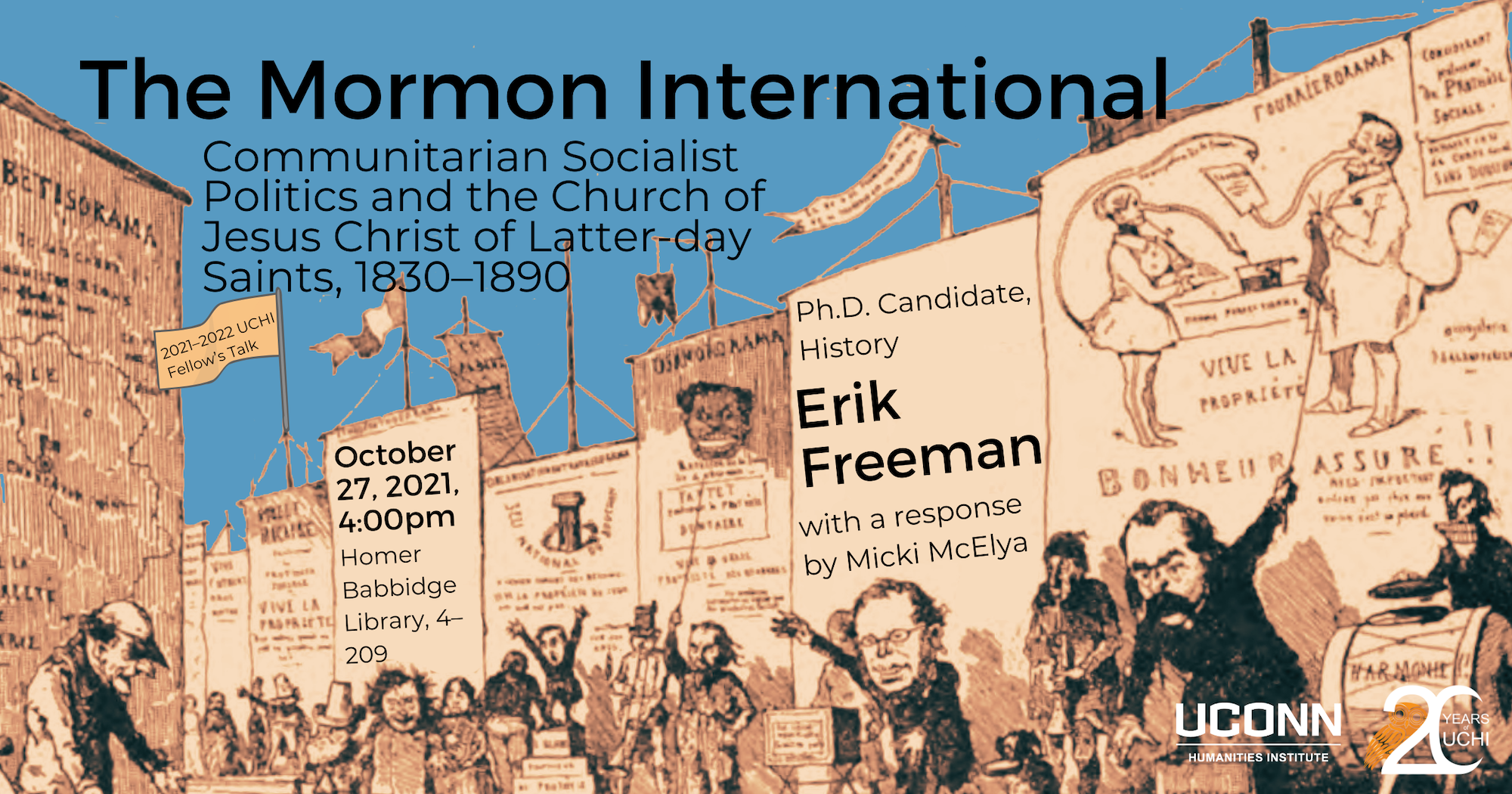
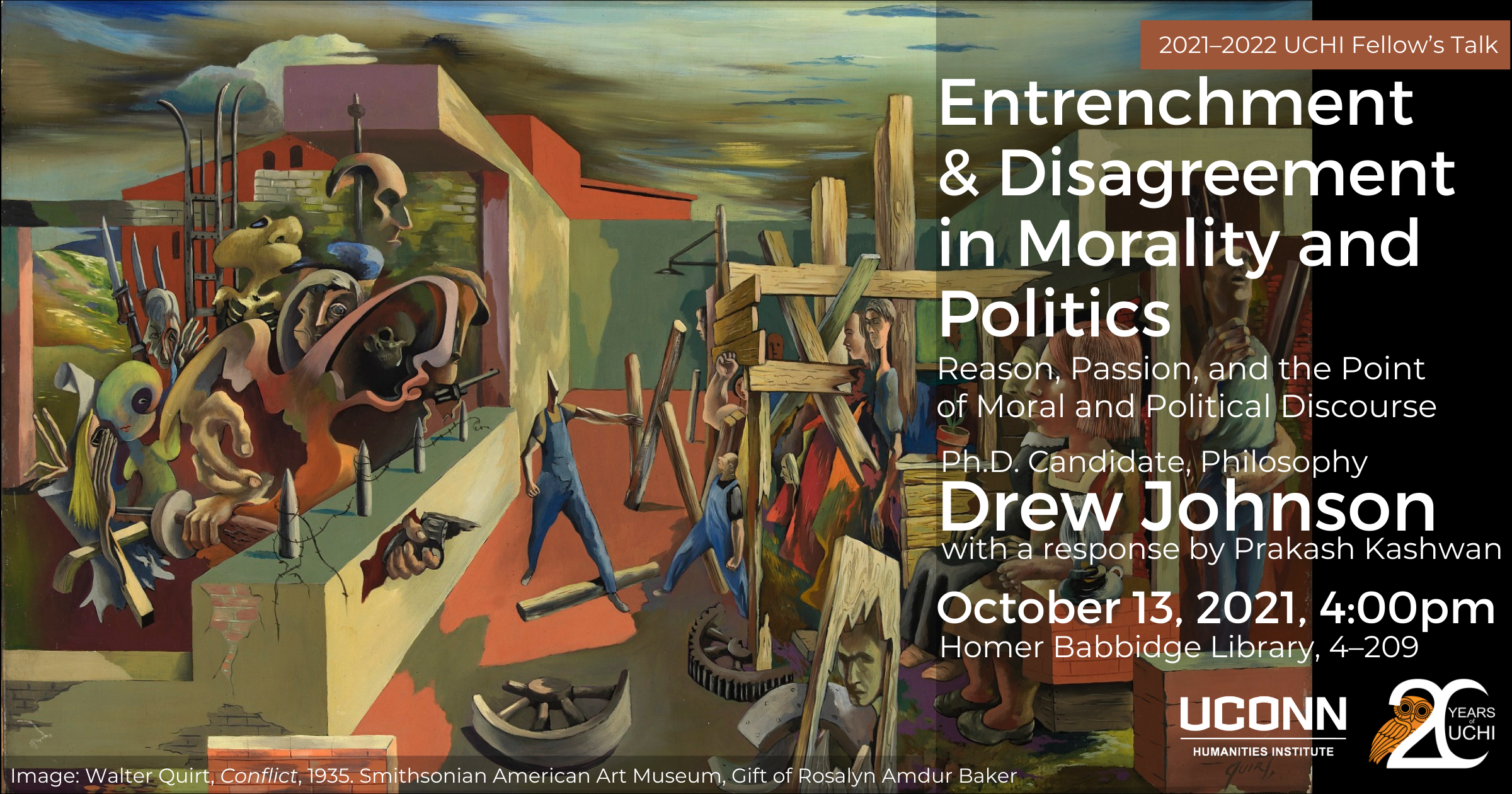
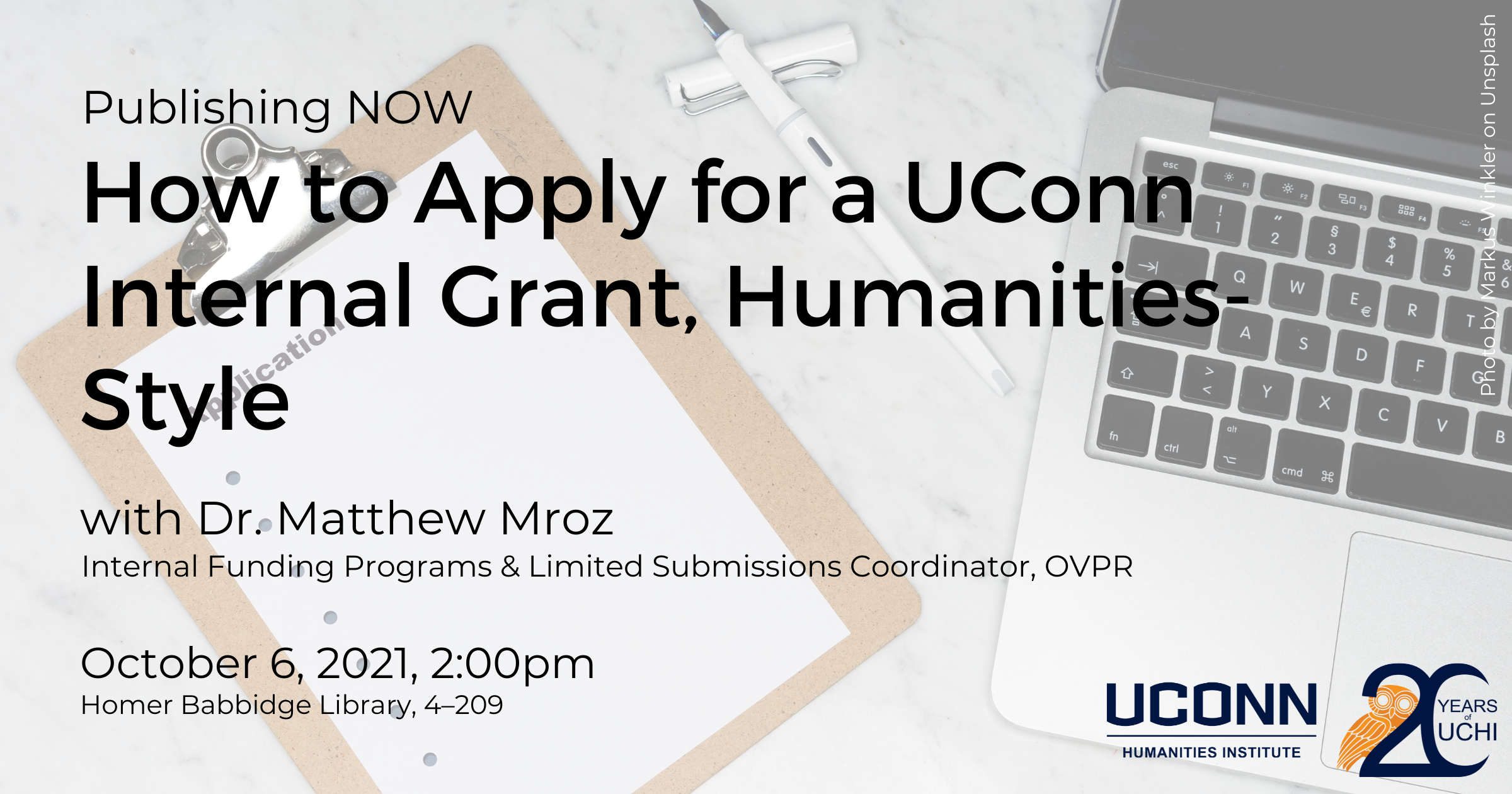
 Paul Bloomfield was a 2007–2008 UCHI faculty fellow and
Paul Bloomfield was a 2007–2008 UCHI faculty fellow and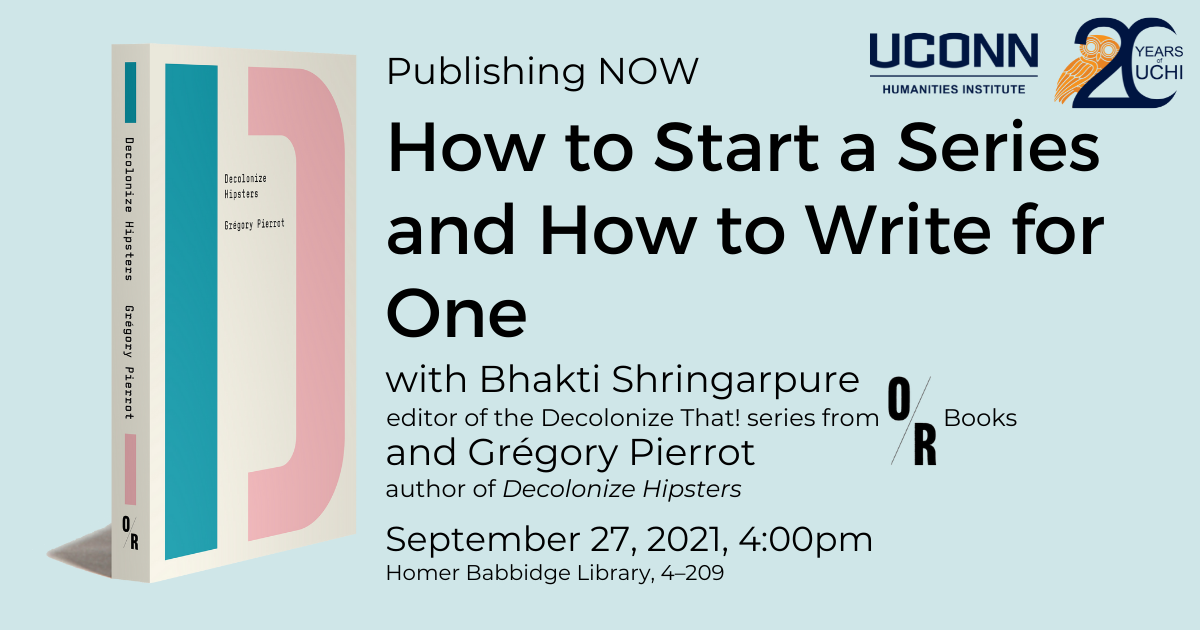
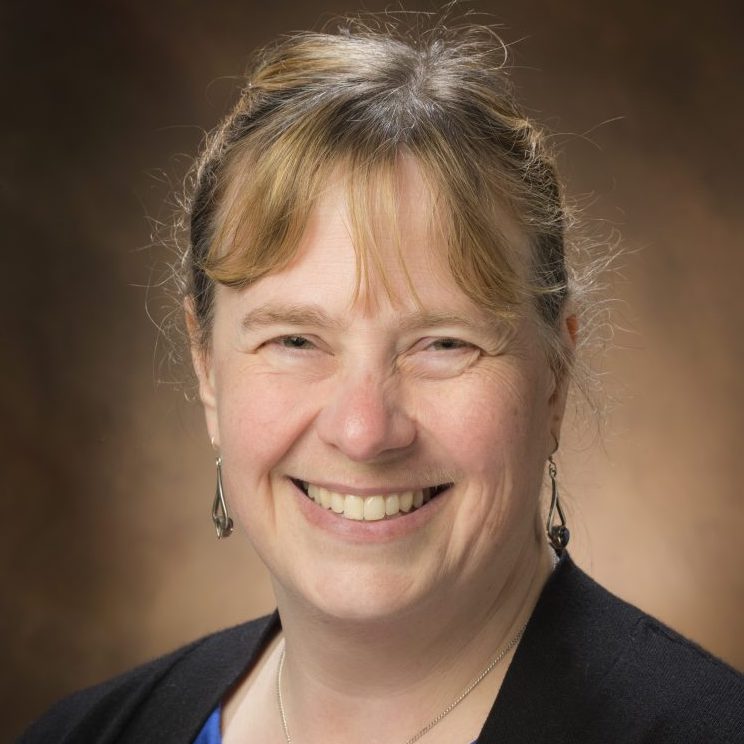 Alea Henle was a 2011–12 dissertation research scholar. A librarian and historian, she is now is Head of Access & Borrow at Miami University. She has a Masters in Library Science from Simmons College and a Ph.D. in History from the University of Connecticut. Over the past years, she’s worked in libraries from Washington, D.C. to Colorado to New Mexico and taught classes in history, librarianship, archives, and records management. Her research interests center on how decisions in libraries, archives, research centers, and commercial database providers increasingly shape the resources available–making materials paradoxically both easier and more difficult to locate.
Alea Henle was a 2011–12 dissertation research scholar. A librarian and historian, she is now is Head of Access & Borrow at Miami University. She has a Masters in Library Science from Simmons College and a Ph.D. in History from the University of Connecticut. Over the past years, she’s worked in libraries from Washington, D.C. to Colorado to New Mexico and taught classes in history, librarianship, archives, and records management. Her research interests center on how decisions in libraries, archives, research centers, and commercial database providers increasingly shape the resources available–making materials paradoxically both easier and more difficult to locate.
